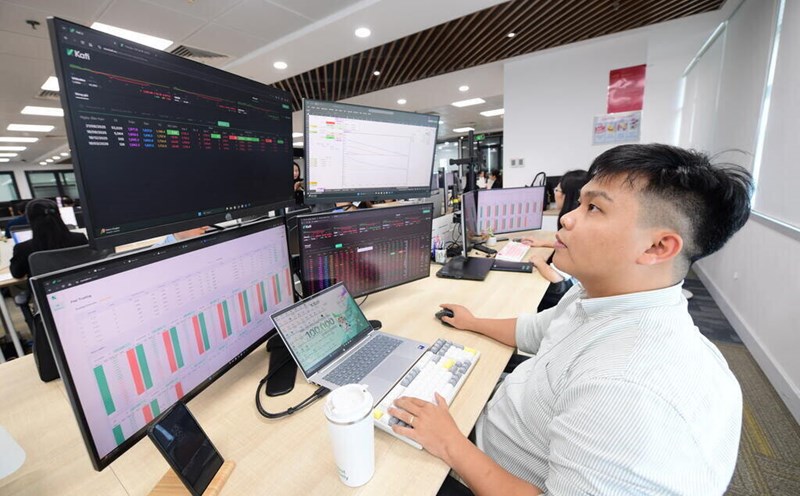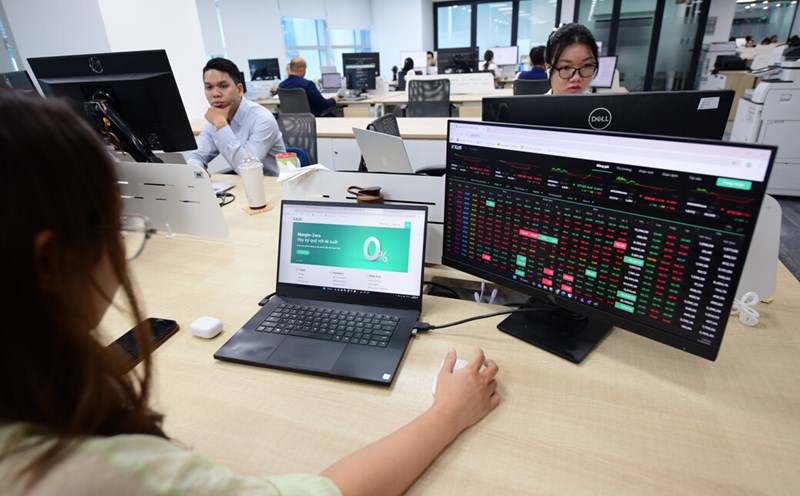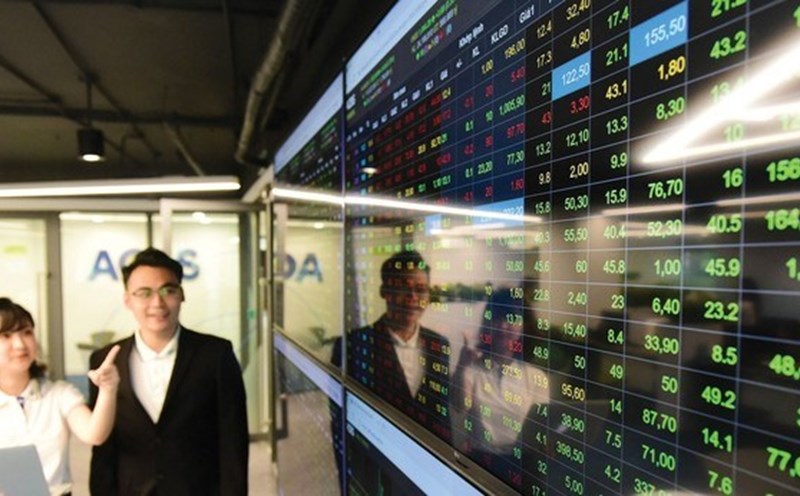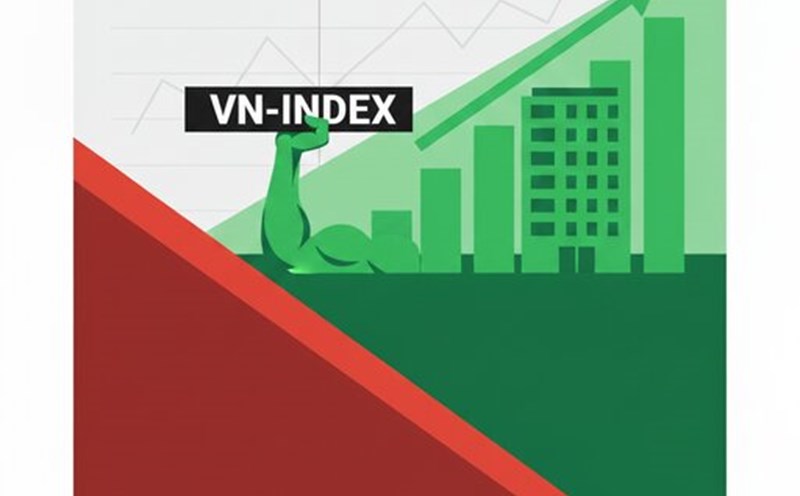Investors observe before deciding to upgrade
On the morning of October 8, FTSE Russell will announce the results of the assessment of upgrading the Vietnamese stock market. Before the announcement, cautious sentiment surrounded investors. On October 7, VN-Index lost 10 points.
According to Mr. Huynh Anh Huy - Director of Analysis of Kafi Securities, in the first session of the week (October 6), the market increased very strongly - VN-Index was only about 4 points away from the 1,700 point mark. Right from the beginning of the session, the index has appeared to be quite large. However, in the context of such a strong increase in the index, foreign investors continue to sell net.
The net selling of foreign investors comes from many causes. First is exchange rate risk - when exchange rates increase, some foreign investment funds must comply with the principles of risk management and portfolio restructuring. Secondly, the Vietnamese market is currently quite high after a strong increase since the beginning of the year, so many foreign investors choose to take profits. Third, they are still cautious about the possibility of being upgraded, even though they can access more information sources.
I did a small research, referring to markets that have been upgraded before. The results show that the period from the announcement of the upgrade to the official take effect usually lasts about 6 months. For example, if Vietnam was announced to be upgraded in October, it will be officially included in the emerging market group by March next year. During that 6-month period, previous markets recorded an average increase of 20-30%, Mr. Huy shared.
Market scenario if Vietnam is upgraded
Mr. Huy commented that if Vietnam achieves a similar increase, that is a very positive number, because since the beginning of the year, the VN-Index has increased by more than 30%. However, there are two points to note. Firstly, the Vietnamese market has experienced a fairly long increase, while previously upgraded markets typically increased by only 10-15% before announcement. Therefore, the additional room for increase of the VN-Index may not be too large. Second, although foreign investors have net sold before, the remaining "room" is not too much, while the capital flow that can return to Vietnam is estimated at only about 5-7 billion USD - not too large compared to the market size.
I still hope that after the upgrading announcement, the Vietnamese stock market will continue to increase thanks to three factors: Domestic speculative cash flow, foreign cash flow returning to net buying, and the positive sentiment of domestic investors in the context of a stable macro economy. Along with that, securities companies are in the process of increasing capital, helping to increase margin's scale, supporting liquidity for the market," Mr. Huy shared.
However, Mr. Huy also said that after the official upgrading took effect, many markets have recorded an adjustment period when speculative cash flow took profits. On average, within a year after the upgrading, their index will decrease. But in the long term, when capital flows from large investment funds begin to disburse again, the market will stabilize and enter a new growth cycle.
Overall, from the announcement period to one year after taking effect, the net increase of upgraded markets typically reaches about 10%. Therefore, the upgrading is still a positive signal, a turning point for the Vietnamese stock market.
FTSE is smaller than MSCI, but being upgraded by FTSE will be an important stepping stone, paving the way for the integration with international standards. The Vietnamese government is also making efforts to promote foreign investor access, especially in large-cap industries - a factor that will make the market more attractive in the coming time.











